Sign up to our mailing list for the best stories delivered to your inbox.
As we celebrate AgriFutures' national winner, we're revisiting Robin McConchie's fascinating conversation with the organisation's chair, Cathy McGowan AO.
WORDS ROBIN MCCONCHIE PHOTOGRAPHY KATHY GABRIEL
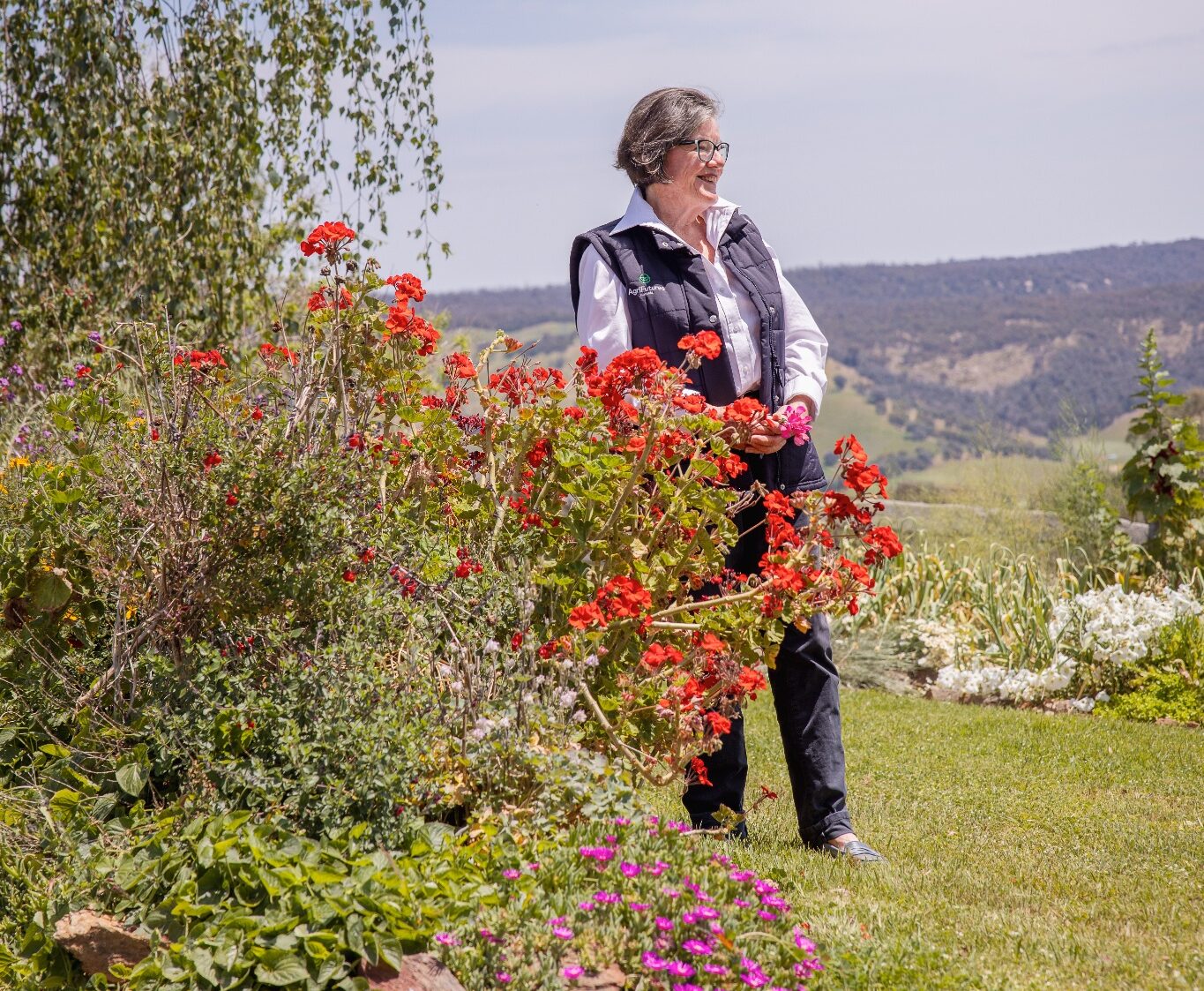
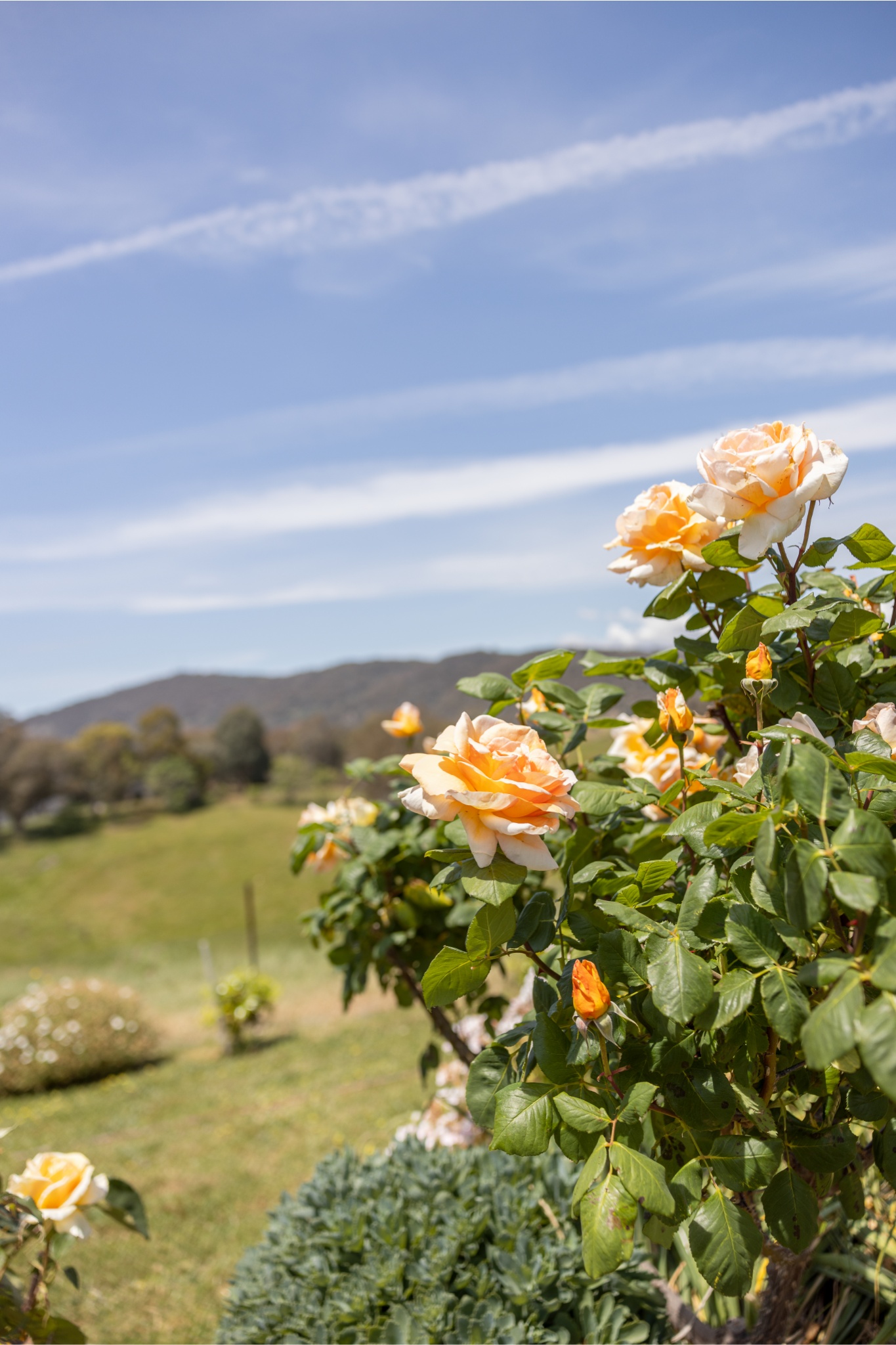
A farmer from the Indigo Valley in north-east Victoria, Cathy studied education, worked for Indi’s Liberal MP Ewen Cameron and, by the early 1990s, she was studying and then teaching Systems Agriculture at Western Sydney University.
It was an exciting time for rural women that saw the formation of groups such as Australian Women in Agriculture, of which Cathy was the inaugural secretary and later president. I was a rural journalist based in the national capital, realising that rural women wanted to be heard.
Cathy was inspirational, enthusiastic and supportive of women who were tired of being the silent partners in the farming enterprise, unable to get loans from banks and not recognised as farmers by the Australian Bureau of Statistics. She understood the frustration rural women felt at being ignored and having their unpaid work on farms unrecognised as a contribution to the Australian economy.
What impressed me then was her understanding of how the bureaucracy worked, where to go to get funding for projects, and her ability to network. She had a great sense of humour and a lovely laugh.
Thirty years on how times have changed for rural women. They have a voice: they lead farmers’ organisations, hold senior board positions, run agribusinesses, and some, like Cathy, represent their electorates in local, state and federal levels of government.
Cathy McGowan describes herself as “a little girl from a big family, the daughter of dairy farmers, who wanted to make a difference in her community”.
She was the fourth of 13 children brought up on a dairy farm in the Indigo Valley. Cathy’s parents, Paul and Marie, were passionate about education and played an integral part in the local community.
When she was growing up in the 1960s, Paul milked cows during the day and worked in the growing field of farm management consulting in the evenings. He established one of the first major agricultural consulting companies, employing more than 70 consultants nationally and internationally.
Talking with Cathy, I gained the impression that many of the battles she fought for rural women were fought on behalf of her mother’s generation, as well as her own.
Marie pulled no punches: as Irish Catholics and dairy farmers to boot, the children were subject to bullying by their Protestant schoolmates. Marie taught her children coping strategies, and they certainly were not allowed to whinge. Cathy counts her mother as one of her most incredible supporters. Despite the difficulties, Cathy describes her childhood as idyllic; she loved life on the farm, helping with chores, surrounded by extended family.
In her mid-twenties, with the help of her family, Cathy bought a small farm in the Indigo Valley, an almost-unheard-of move for a young single woman in the 1970s. At that time, banks wouldn’t consider a woman for a loan to buy a farm. That was men’s business.
When I caught up with Cathy for Graziher, she was delighted to be spending more time on her farm, reconnecting with community and friends, and her partner David Wolfenden, who lives on his own property 130 kilometres away, in the Riverina of New South Wales.
This year it’s 10 years since her election to parliament, 30 years since the formation of Australian Women in Agriculture, and a year since she was appointed chair of AgriFutures Australia. As Cathy celebrates her 70th birthday, her passion for agriculture and rural communities is as strong as ever.
Where does your desire to make a difference come from?
From my upbringing on the farm: there is a massive sense of interdependence in rural areas. You can’t live in a rural community by yourself; you’ve got to get on with your neighbours. We have bushfires, so you’ve got to join the fire brigade. We have weeds, so if you want to eliminate them, you’ve got to join the Landcare group. You’ve got to work in the community to get things done, because you can’t do it alone. I inherited a sense of responsibility from my mum and dad, that you should leave the world a better place, and if you don’t, you need to take a good look at yourself.
You were recently awarded an Honorary Doctorate of Letters from Western Sydney University in recognition of your significant contribution to raising awareness of issues affecting women in regional areas. What does the Doctorate mean to you?
It means so much! I was not a good student. My first degree was a struggle, and it was even more of a challenge going back as a mature-age student to do a Masters in Agriculture and Rural Development. I had to learn how to learn; there was a lot of self-reflection, which was difficult. Self-reflection was very challenging for me. I was a woman farmer! What did I have to offer, and what did women have to bring to farming? At the time, I thought the answer was “nothing”. It was a blokes’ world, and I just wanted to be good in that world.
But Hawkesbury pushed me, and I discovered, yes, I was a woman, I liked being a woman and not a substitute bloke. Once I understood that and claimed the space, I had to ask, what do women in ag have to offer? I looked around and found that rural women everywhere were in the same boat. We were not bringing our authentic selves to agriculture. My analysis showed if we got our authentic selves, our femininity and our unique skills into the discussion, we could have a considerable impact not only on the profitability of agriculture but also on farming practices.
My model at the time, which was 30 years ago, was men did most of the outside production work, and women did the inside jobs; that is, the books, the kids, the housekeeping and the communications. It was the women who listened to the radio, heard the news and new ideas, and were involved in the local community. Many of these women had trained as teachers and nurses and were used to being totally engaged in the community.
I developed this idea that if women were given permission to bring their skills, knowledge, and networks in a legitimate way to agriculture, rather than being the silent partner, then the whole of agriculture would be better off.
So that was what I did my thesis on: ‘the potential productivity increases of involving women in agricultural decisionmaking’.
A good example is the case of the Lady Finger banana. Research scientists, with the support of banana growers, were breeding bigger, better-tasting bananas, guaranteed to put more dollars in the farmer’s pockets. But sales didn’t improve! Why? Because the bananas were too big and they didn’t fit in school lunch boxes. The farmers and the scientists had not done their market research; they hadn’t asked the people who buy the bananas for their families — women and mothers. We needed to understand the invaluable role women could play if they were included in the discussion.
I wanted to set up a business where we could get funding for discussion groups so women could test and be part of the research uptake. I pitched my idea to the dairy industry to see if women were interested, and they just loved it. They wanted women-specific groups held at a time and place convenient to them and not when they were taking the kids to school or in the pub. We also found if childcare was available at the venue, we got a 100 per cent increase in the number of women coming along.
We got funding for a mobile childcare service, and we’d have meetings in the local hall or someone’s kitchen. It was highly successful, and we worked with other industries, including sheep and wool. We engaged professional facilitators and ran Farm Skills workshops, and the women loved them. What I learned was there are all sorts of ways people want to learn about agriculture, and by providing a diversity of opportunities, we opened up knowledge to many people.
Did the involvement of women in these workshops and groups change the attitude of men or industry lobby groups, which you described as “very blokey”?
Gender is not the issue it was 30 years ago. But initially we got a lot of flack from the blokes. So we ran Verbal Karate workshops: what do you say when someone says, “You are not really a farmer; you are only a pretend farmer”? Or what do you say when the insurance rep says he wants to speak to the boss, and they are talking to you? Or what do you say when the agent rings and says he can’t get to the farmer to discuss buying or selling grains? We would role-play and workshop ideas that worked, weren’t too smarty pants and had a bit of kick. For example, with the insurance rep, when he said he wanted to speak to the farmer, you might say, “You are talking to her” and that is all you would say, then you would just shut up. Because then the insurance person is going to make a choice to speak to you. Or they might say well, I don’t want to talk to you. I want to speak to your husband, in which case, you could say, “Well, that’s not possible, sorry, goodbye.” Or they would realise what they’ve done, and they would say, “I’m sorry, I’m happy to speak to you.”
Your thirst for knowledge and personal development seems unquenchable. Tell me about the lightbulb moment you had when speaking with Sarah Henderson from the Northern Territory. You asked how she coped in a male world when competing with men.
She looked at me and said, “Oh, I don’t compete with men; my competitive advantage is that I am a woman.” Her response had a profound impact on me. It was a really useful way of reframing my understanding of who I was and the work I did. I didn’t feel I had to target women, and I didn’t feel I had to always work with women; I just knew that being a woman was my competitive advantage and it could also be a competitive advantage for other women. I am not talking about playing the gender card. It’s about understanding your strengths and working to them.
By 2012, you were comfortable as a farm consultant, living at your Indigo Valley farm and travelling internationally. Then there was an unexpected phone call that changed your life.
The call was from a couple of my nephews and nieces who asked me to stand for Parliament in the seat of Indi. They wanted to make the safe Liberal seat of Indi marginal, in the hope of getting action in their community. They were sick of being ignored, and said the lack of mobile, internet and train services meant they did not want to return to the area after finishing uni. I knew that those kids were right. There was a high level of dissatisfaction across the community. But I was not a political animal and did not want to stand for Parliament, though I did want to help, but how?
I called friends from Australian Women in Agriculture and the Australian Rural Leadership Foundation to see if they were interested in at least discussing what could be done. Months of conversation, analyses of electoral trends and discussions with the community about what they wanted and their willingness to engage in the campaign resulted in a plan. A grassroots movement, the Voices for Indi, aimed to rattle the decades-long Liberal–National Coalition stranglehold over the seat.
What was the catalyst that finally tipped you over the edge to be the person to stand for election?
It was when my father died. He had led an active and worthwhile life as a father, farmer, ag consultant and community member. Losing him made me realise it was time to act if I wanted to make a lasting difference for my community.
People supported the campaign because we wanted to get action on things like the terrible train, phone and internet services. We wanted greater accountability and more community input to the MP’s agenda in parliament. We asked the community if they wanted to be part of the campaign, and then if they did, we asked how they could help.
Hundreds of volunteers rallied: cooking, campaigning, hosting kitchen-table conversations and running events. One friend even took her lambs to the local sheep sales in the back of her ute dressed in orange ‘Cathy’ T-shirts.
The heart of the win was a community mobilised into political action because they wanted change, as well as a great team of volunteers, a well-organised campaign and a good deal of luck.
Voters in Indi may not have voted one for you, but they preferenced you above any of the other candidates. Was it a shock when you won?
In a way, I was quite angry. I had a good life, but when I told [my partner] David I would go to Canberra, but for one term only, then go back to consulting, the response was a kick in the backside!
I had to change my attitude, do the job properly and become effective. I had to listen to my community, speak up in parliament, work hard and do a good job. I moved from liking it to absolutely loving it and enjoying the challenge.
You represented the community of Indi for two terms, re-elected with an increased margin in 2016. Then you passed on the baton to the Voices for Indi candidate Helen Haines, who won the seat in 2019 and again in 2022. What are the proudest achievements in your time in parliament?
I know I was an effective member of Parliament. I learned the ropes, used my negotiation skills and refused to do deals. I delivered on the community agenda and was able to negotiate funding for improved train services, better mobile coverage and decent internet.
For the farm sector, I was able to massage the $5 billion Future Drought Fund legislation to be much more than a slush fund, turning it into a valuable resource to build drought resilience. I’m proud that the Voices for Indi, with the community at the centre of the political ecosystem, inspired a new generation of independents who were elected to Parliament in 2022.
You’ve always pushed yourself hard. Your energy and passion are infectious. To what do you attribute your success?
All the way along, people have helped me. If I stand tall, it’s because I’m on the shoulders of giants: all the Women in Agriculture; Heather Mitchell, who in 1985 became the first female president of the Victorian Farmers Federation and co-founded Landcare; local media; the Department of Agriculture, Fisheries and Forestry in Canberra; and there are others. They have seen potential in me and other women as well. I’ve always been part of teams and always had many friends and colleagues who have gone, “Okay, we could do that. What about it? Let’s give it a go.”
Will you continue working to get more independents into parliament?
I’ve got a heretical view on this question. When I was a member of Parliament, I just had a job to do, which was to represent my community, and I did not want to be Prime Minister. I wasn’t looking for upward advancement. My job was to be a good MP and then to get myself replaced.
I’m not on a crusade to get more independents into Parliament. All of the independents there now can become mentors and pass on knowledge, and I am happy to support the Community Independents Project [a not-for-profit organisation supporting independent candidates for parliament].
What’s your focus now?
My energy now, as chair of AgriFutures Australia, is for the critical work that needs to happen in rural and regional Australia around the transformation to zero-carbon agriculture. I’m keen to be part of that discussion and work with the Minister for Agriculture, Fisheries and Forestry, the team at AgriFutures, rural consultancies, the Rural Research and Development Corporations and the National Farmers’ Federation. I will bring all my skills and knowledge to this discussion, which is hugely significant.
Do you see reluctance in the agriculture sector to embrace change?
No. It will be a vast transformation, and if we can put the community at the centre of it, like we did in the Voices for Indi, the result will be much better. Otherwise, it is just the government, big organisations and the banks telling farmers what they’ve got to do, and that will not get good results.
I want to be part of a transformation where communities can work out what they want to do about climate change and how they want to be involved.
Cathy McGowan’s autobiography, Cathy Goes to Canberra: Doing Politics Differently, was published by Monash University Press in 2020 and is available on her website.
Robin McConchie is a member of the Queensland Rural Press Club Hall of Fame and worked for ABC’s Country Hour for over 30 years.
To hear more extraordinary stories about women living in rural and regional Australia, listen to our podcast Life on the Land on Apple Podcasts, Spotify and all major podcast platforms.
Subscribe to Graziher and never miss an issue of your favourite magazine. Already a subscriber? Gift a subscription to someone special in your life.
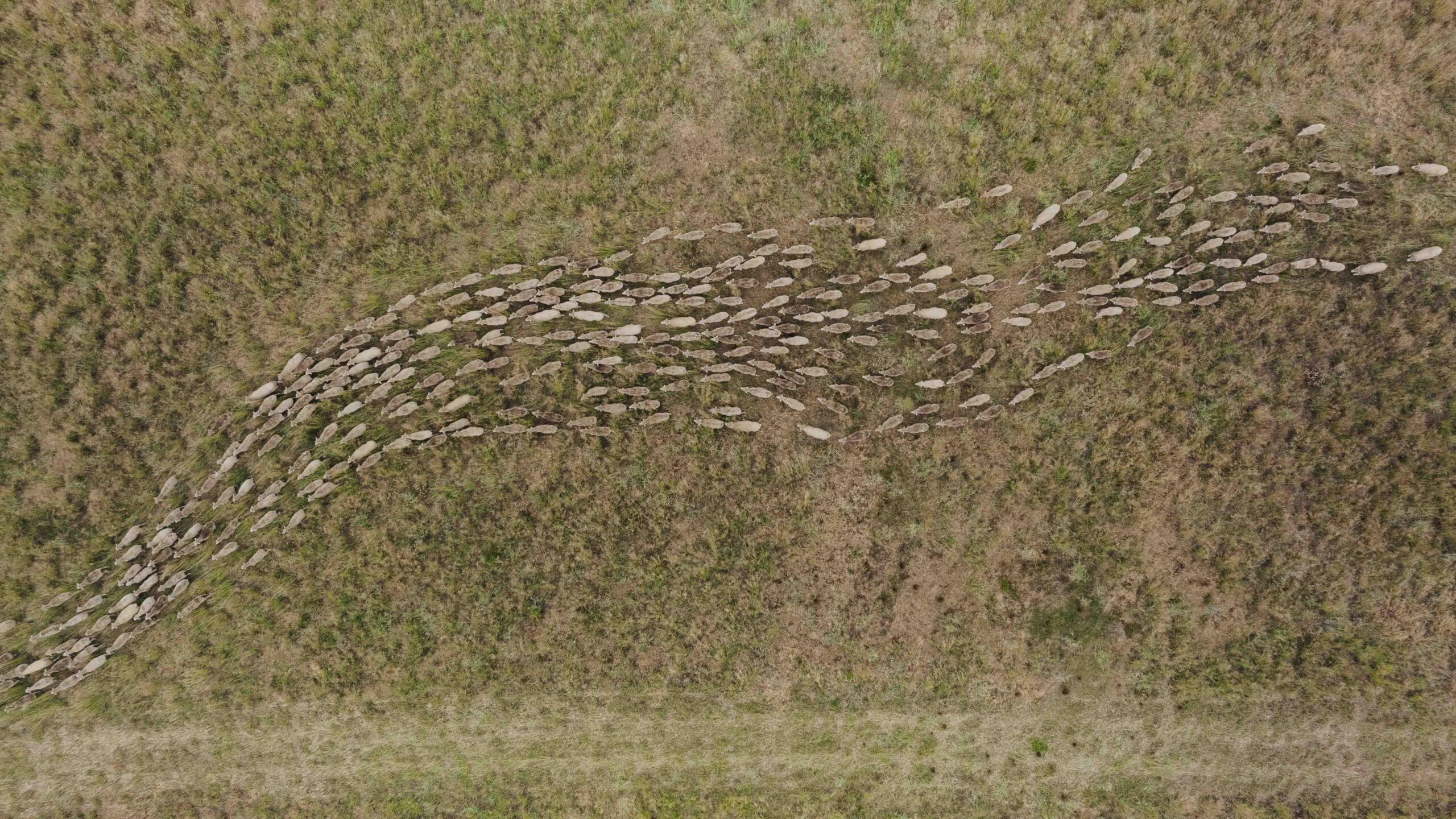
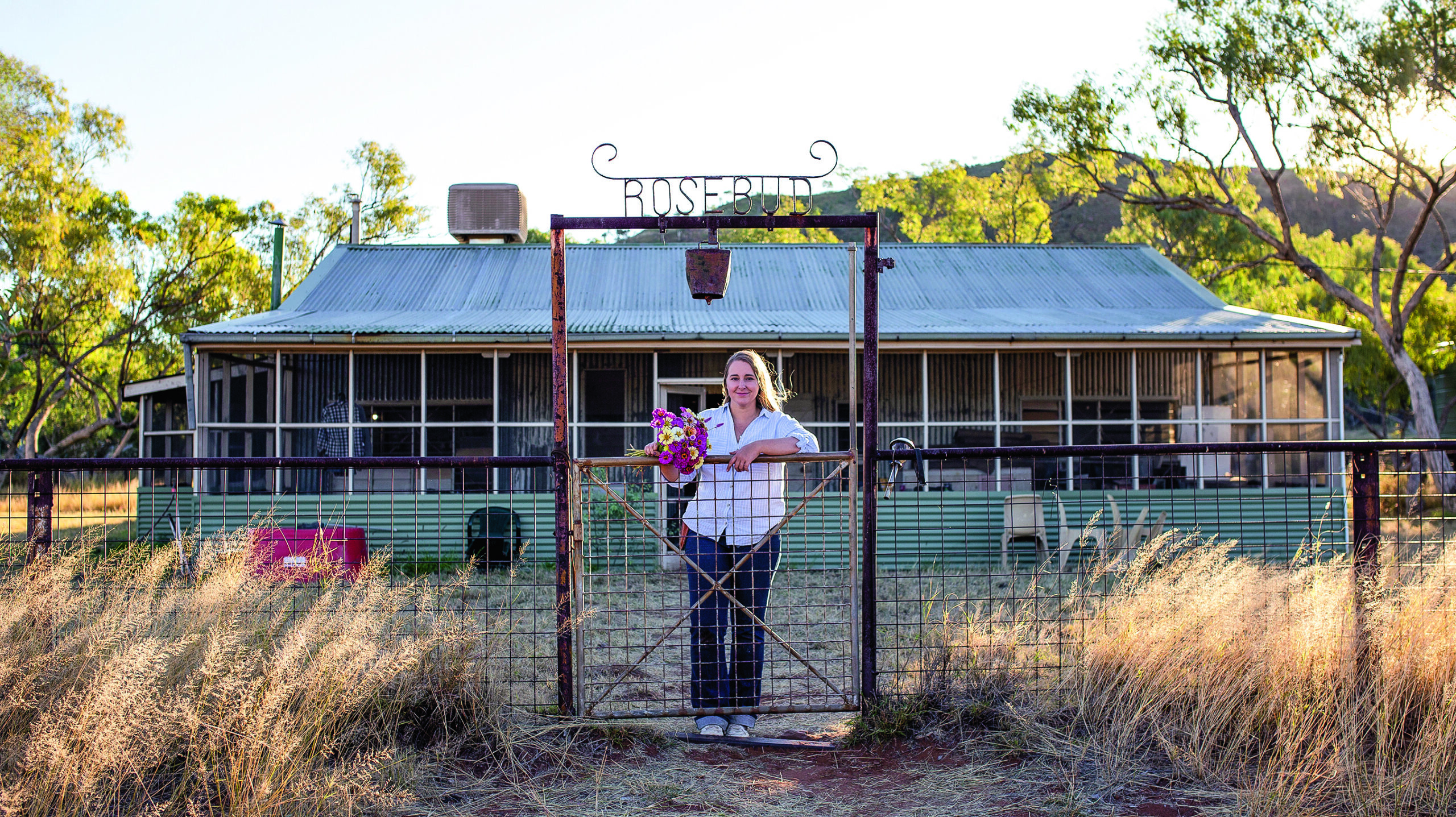
When she wanted to make a place for herself on her husband’s family farm, Samantha Campbell took up the challenge of growing flowers in the outback.
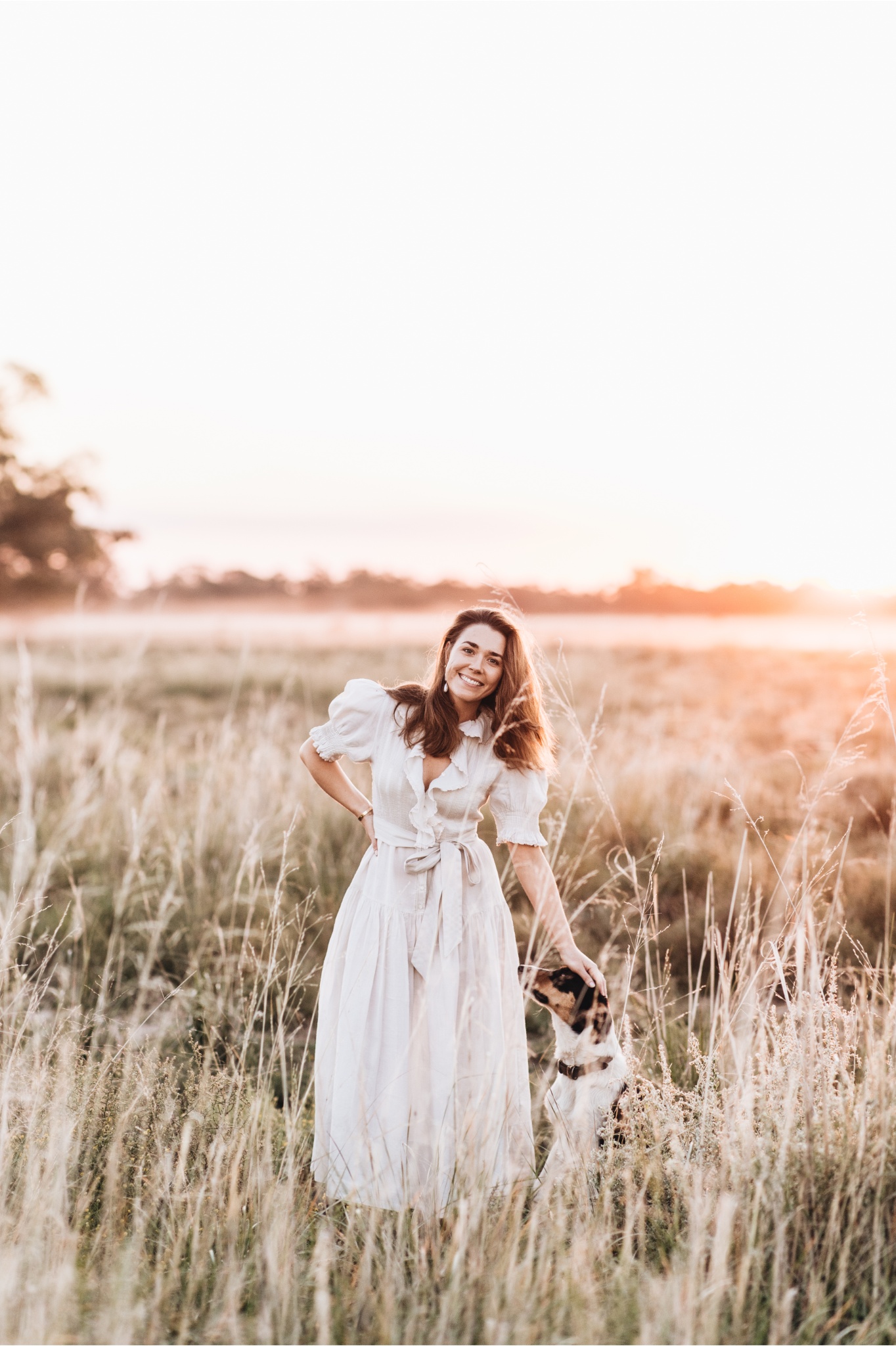
The now 34-year-old has a thriving business.
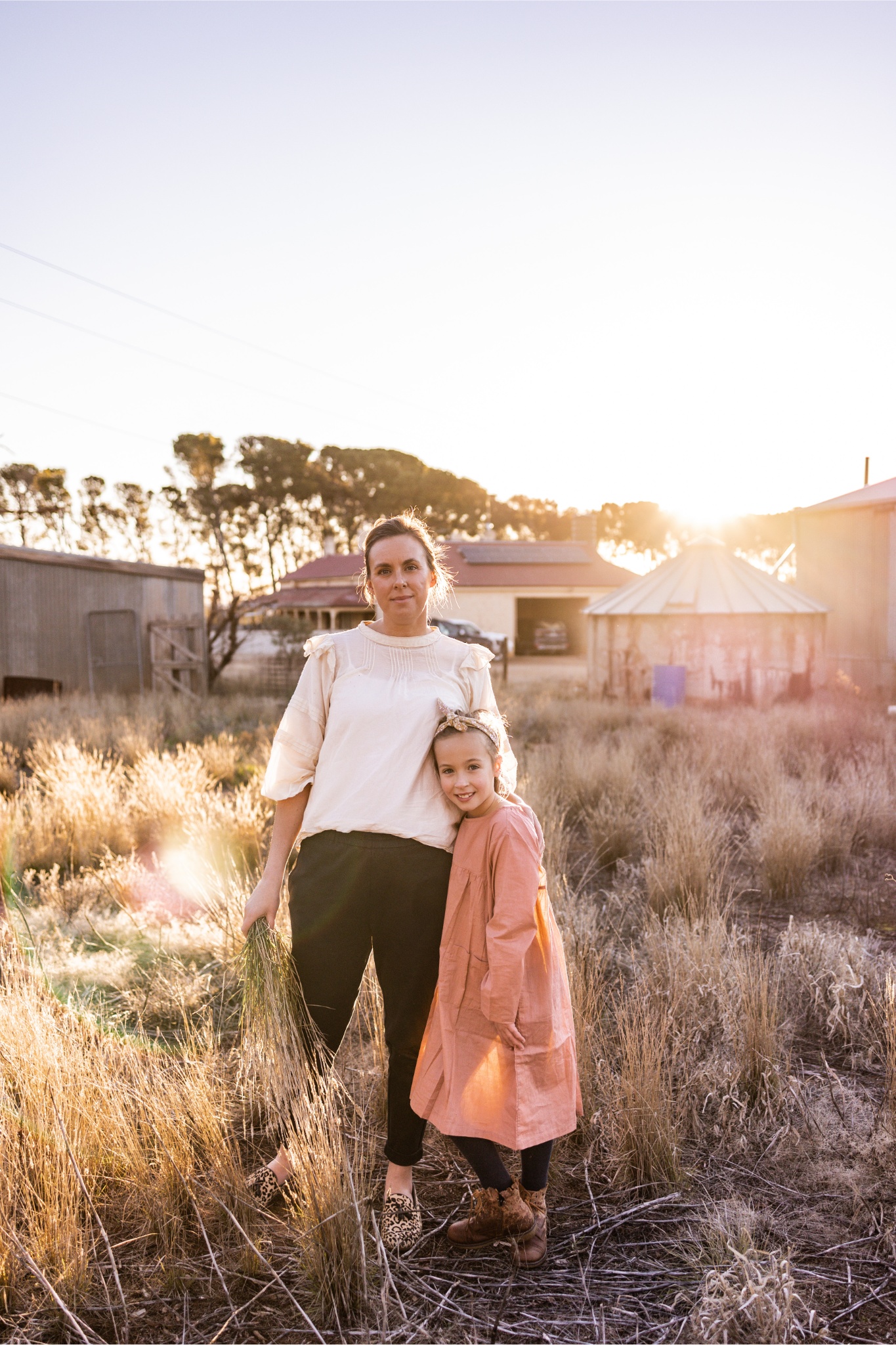
Ellie Stacey and her family are breathing new life, love and laughter into a cherished South Australian home with a rich history.
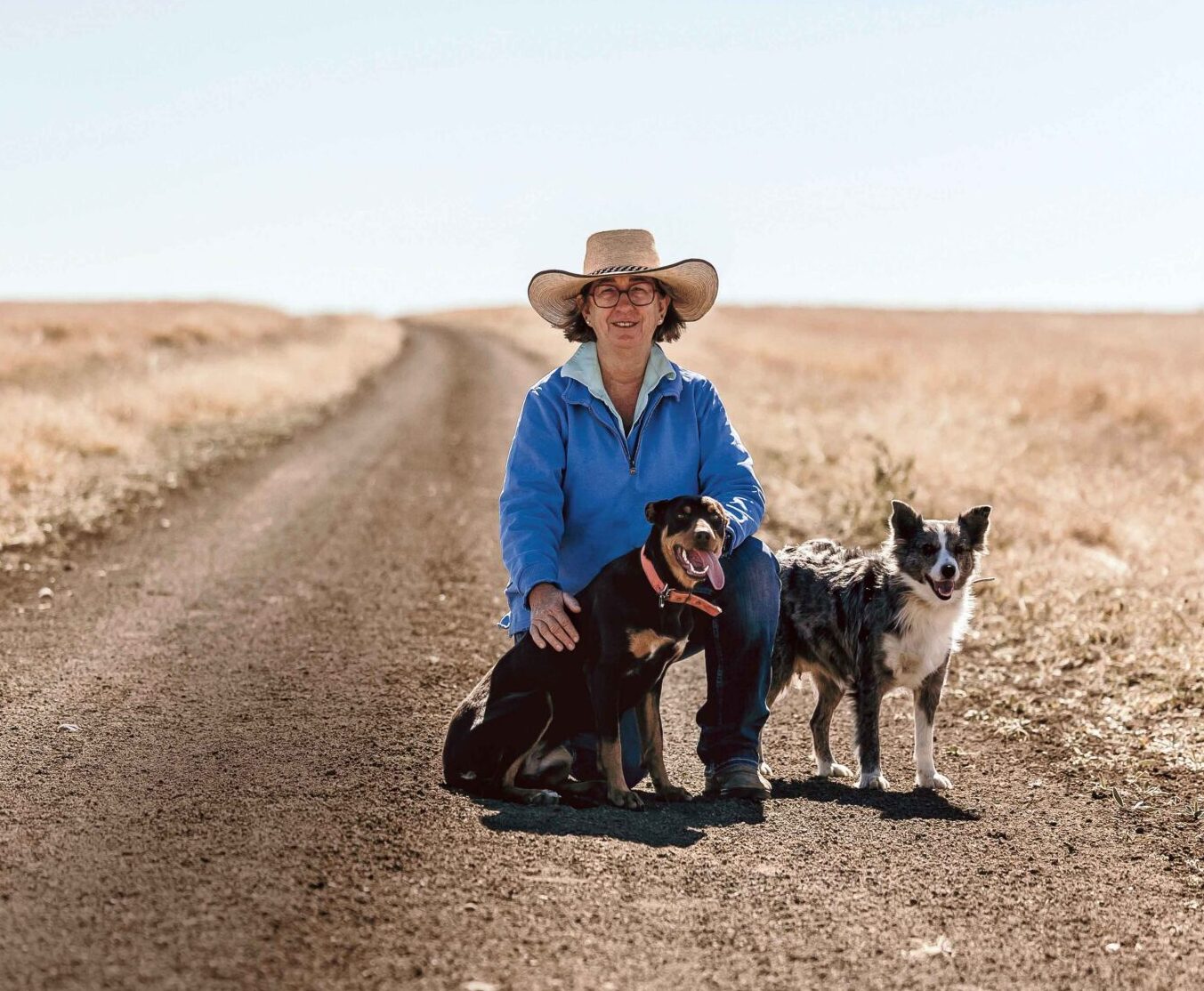
In her youth, she struggled to find her place. Now, Louise Martin knows exactly where she needs to be: in Tambo, Queensland, making sure rural children get the education they deserve.
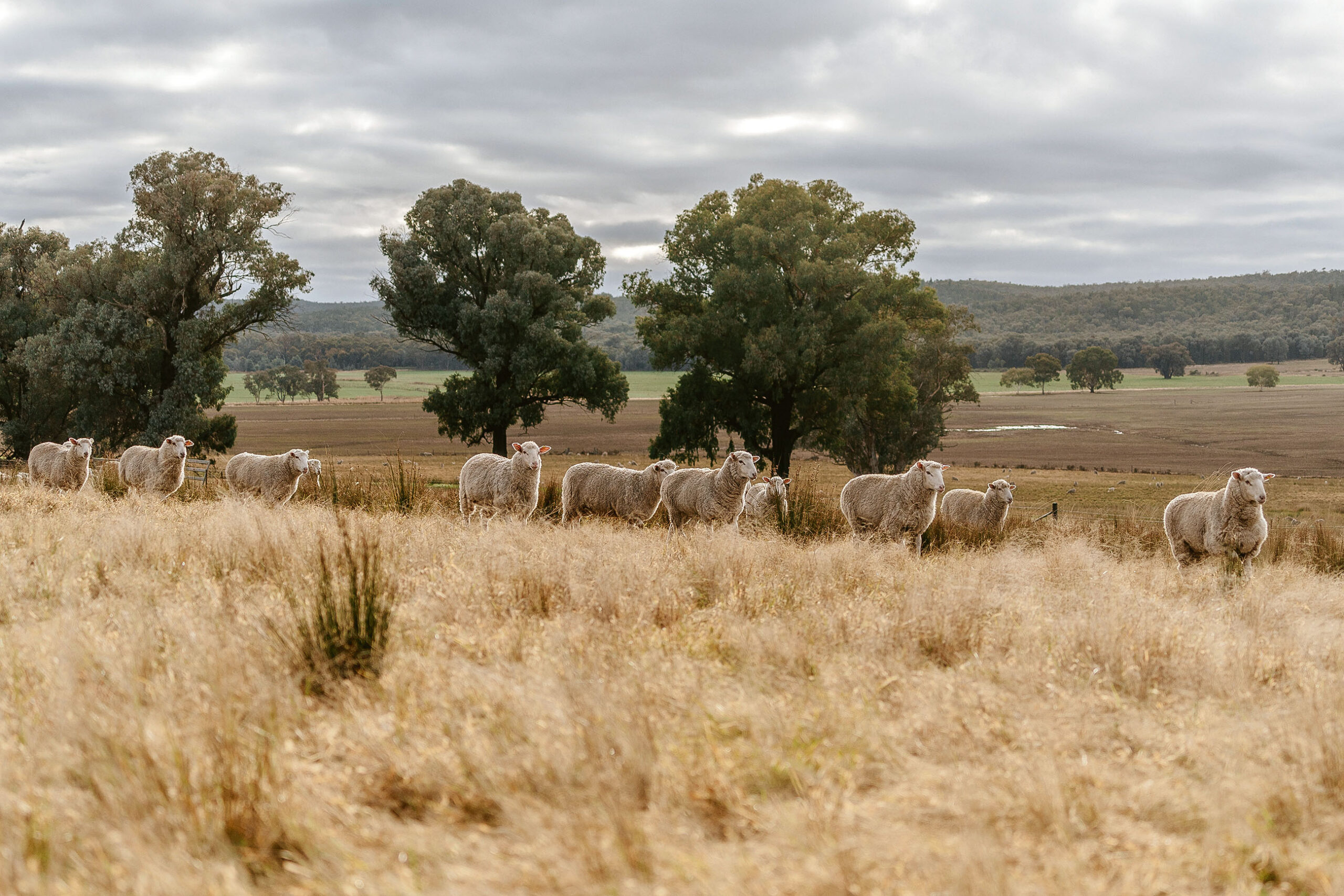
Writer and photographer Alexandra MacAlpine finds ways to hold onto moments of peace amid the busyness of station life.